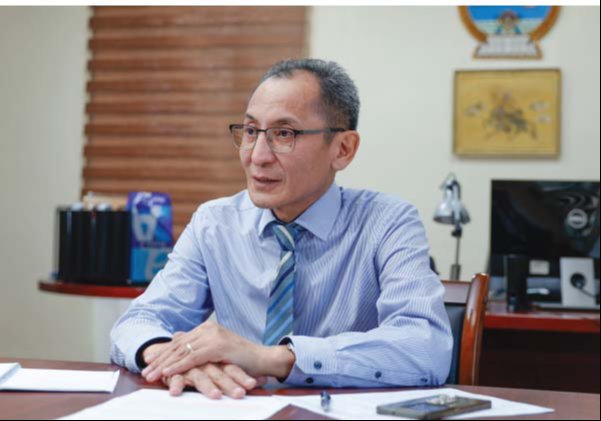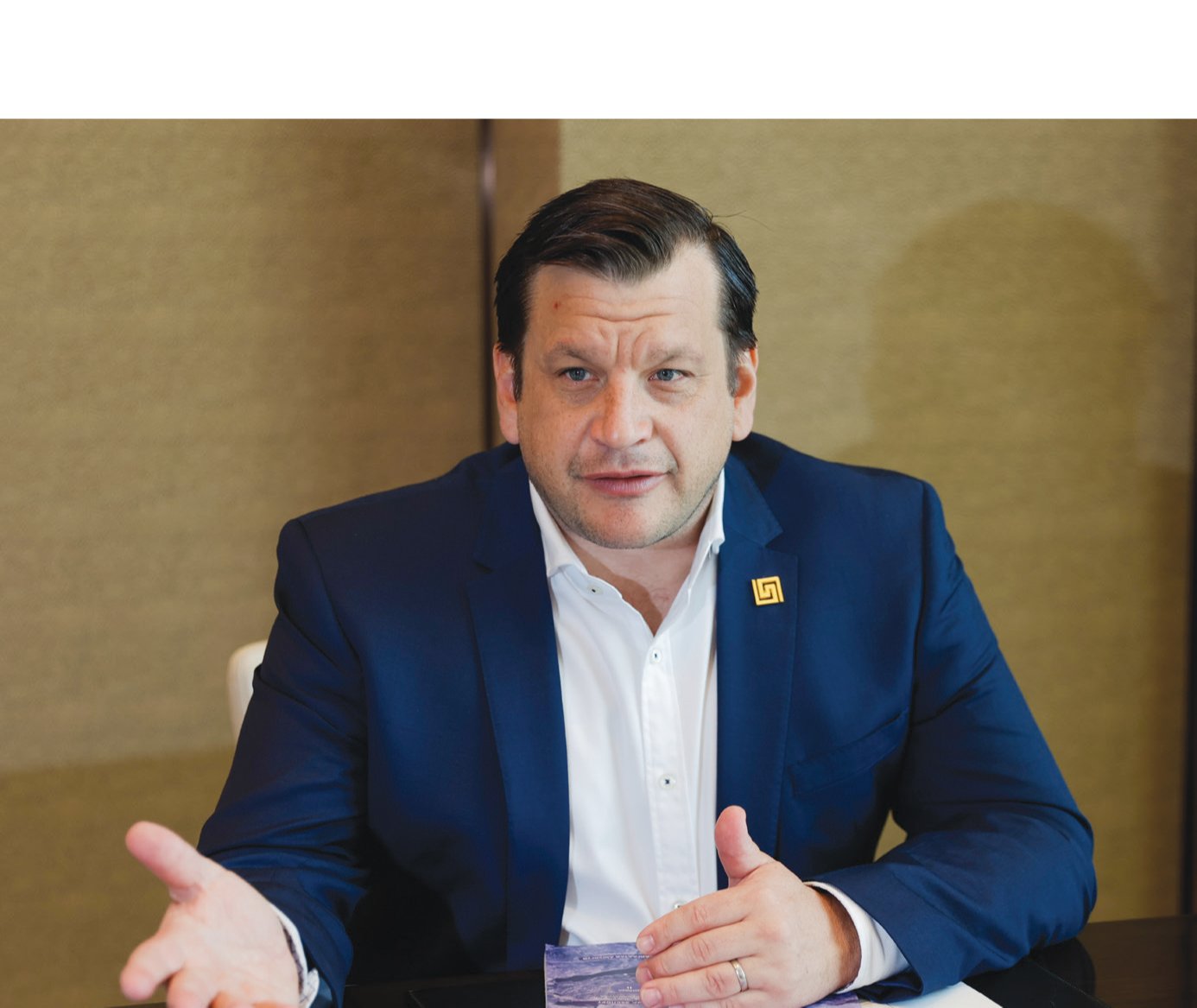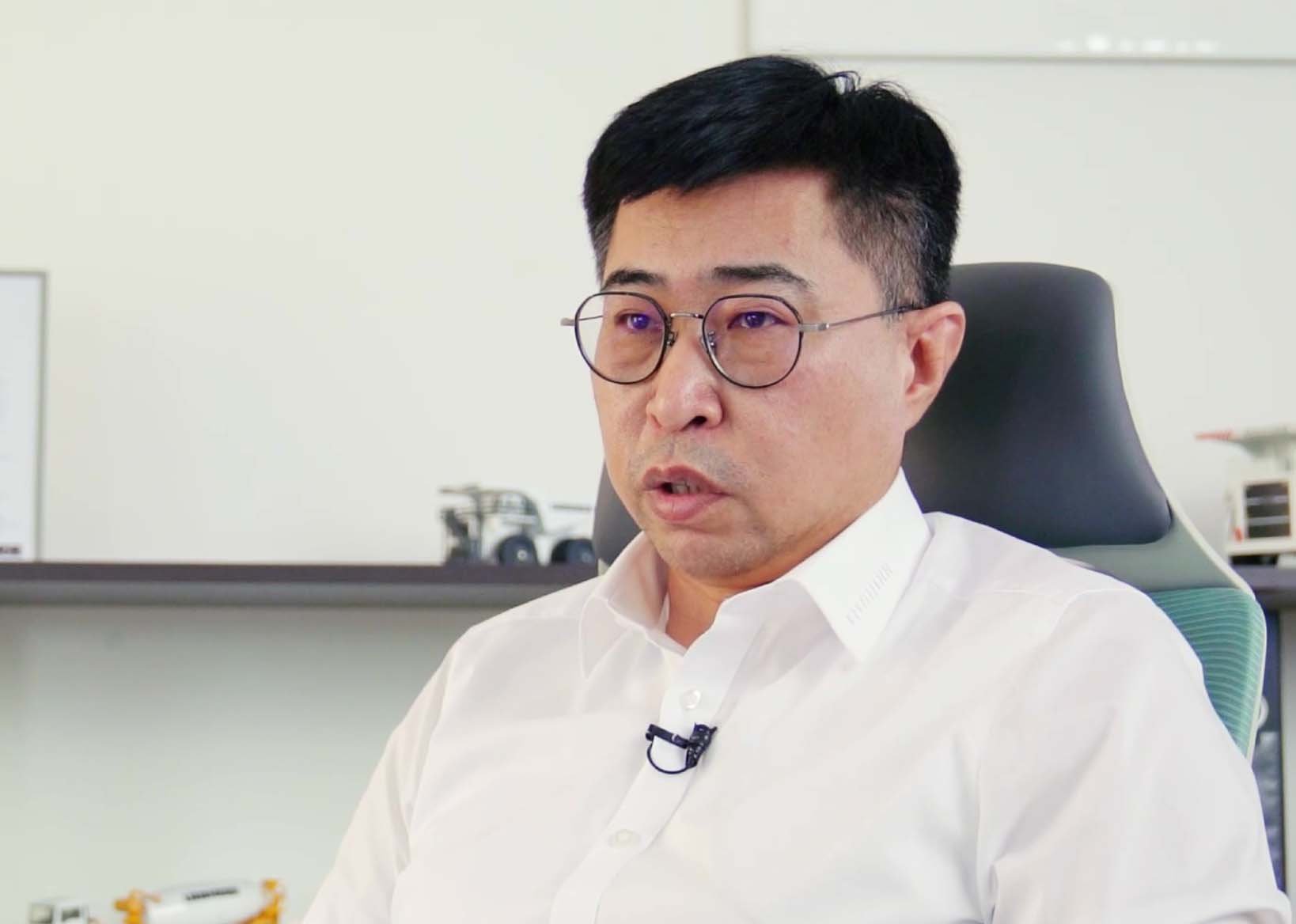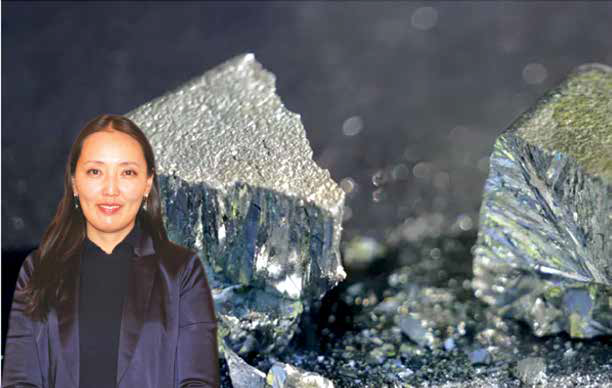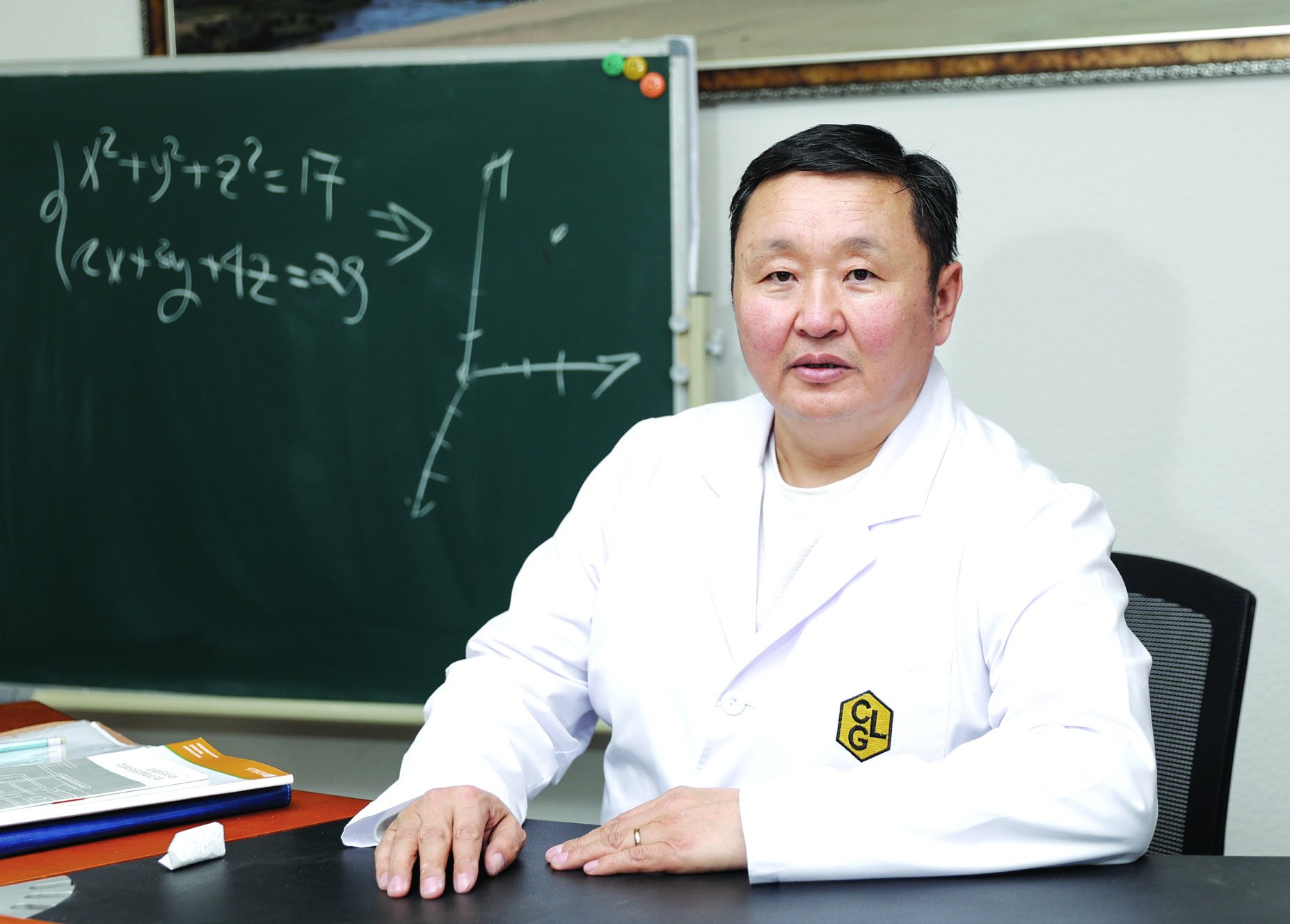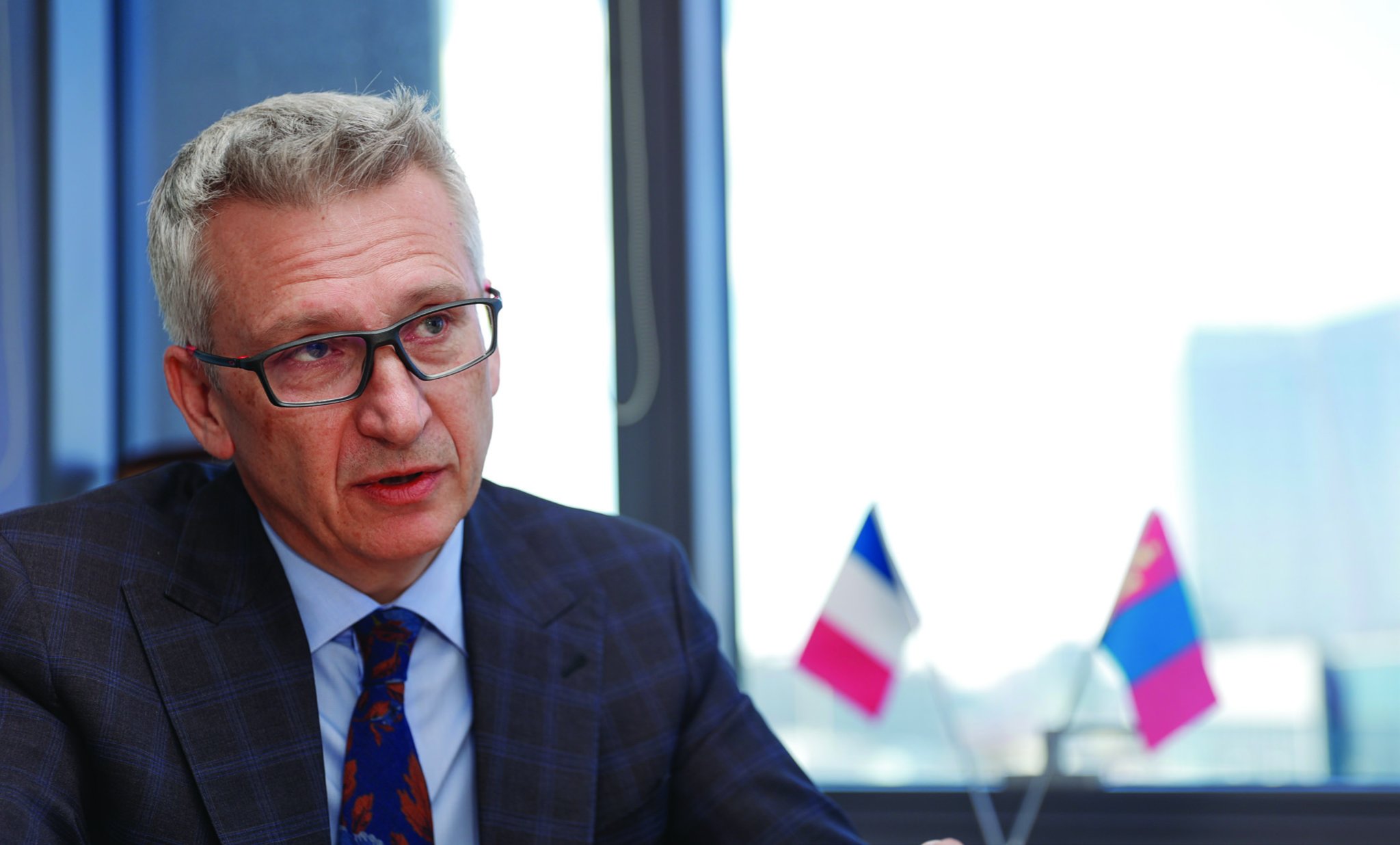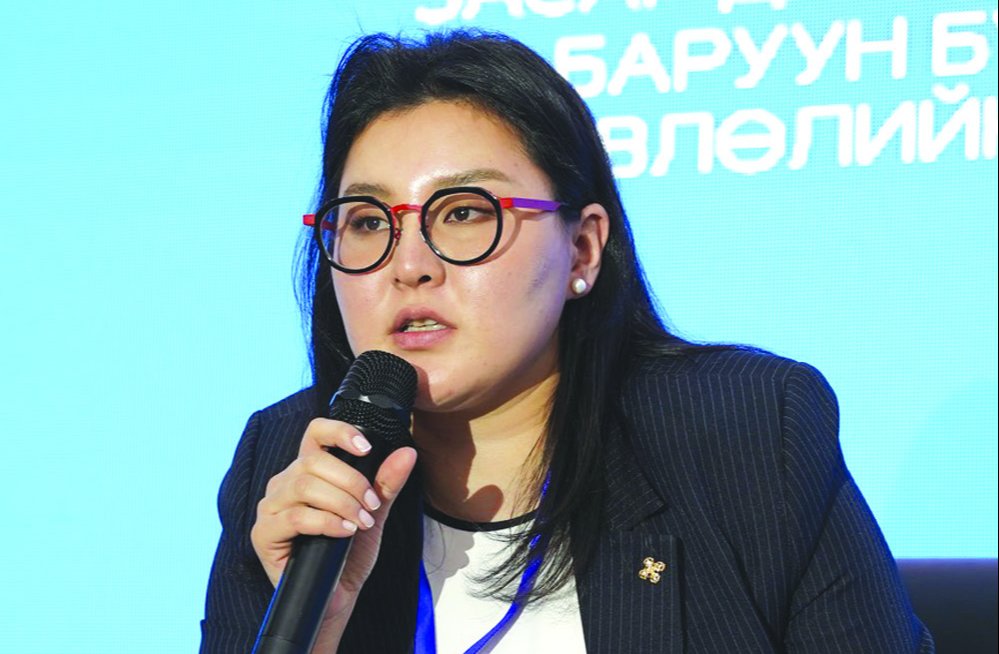Interview
G.Manlaijav: Mongolia will emerge as a new player in the global uranium market
Human development cannot be separated from energy. The development path of any country is inextricably linked to the energy sector. Currently, there is a growing demand for inexpensive, safe, and clean energy all over the world. To address the challenges of global climate change, and energy crisis and meet the growing demand, countries are increasingly interested in nuclear energy.
N. Byambasuren: Our main goal is to support customers through our products and services
The upcoming "Mongolia Mining 2023" international mining and oil expo, now in its 12th year, is set to gather the premier companies from Mongolia's thriving mining sector. In an insightful discussion, I had the privilege of speaking with N. Byambasuren, CEO of Mines Up LLC, silver sponsor of the expo. Mines Up LLC is set to contribute its expertise and innovation to the industry showcase.
N. TEGSHBAYAR: OUR TIME FOR URANIUM MINING IS COMING
Rare earth elements are becoming an important raw material that is attracting a lot of attention around the world. But so far, the reserves of rare earth elements in our country have not been fully determined, and we cannot even conduct exploration.
B. Dulguun: Electronic coal trading is piloted successfully
The government has approved a temporary regulation for the open electronic trade of coal for export. This will be effective until the “Law on Mineral Commodity Exchange” comes into force, i.e. until the end of June of this year. During this period, the government has assigned the electronic trading of coal through the Mongolian Stock Exchange, and the Financial Regulatory Commission has been tasked with overseeing electronic trading.
N.Tserenbat: The future of Oyu Tolgoi depends on well educated and skilled Mongolians
G.Iderkhangai, editor for The Mongolian Mining Journal, spoke with N.Tserenbat, CEO of Erdenes Oyu Tolgoi LLC.
The members of the working group shared their views on many issues, and some progress is being made
You were appointed by the Board of Directors of Erdenes Oyu Tolgoi LLC (1 October 2021) as the CEO of the company. In the subsequent eight months, shareholders have made a number of major decisions. As a result of the agreement reached between the government working group and the Temporary Committee on one side and the investors on the other side, the Oyu Tolgoi underground mine finally began production after 26 months. As the CEO of a state company that owns 34% of the Oyu Tolgoi project, how would you assess the work you have done in this short period?
B. Tsengel: It’s time to reform state-owned companies
G.Iderkhangai of The Mongolian Mining Journal, spoke to B. Tsengel, Director of the Government Agency for Policy Coordination on State Property and Regulation (PCSP), about current issues facing state-owned companies.
We will establish a unified reporting mechanism for state-owned and partial state-owned legal entities
No major changes have been made to the Law on State Property since its enactment in 1996. The law is expected to be changed. What principal changes will be made?
First of all, my greetings to the readers of your magazine. Since 1990, Mongolia has moved from a centrally planned to a market economy, allowing many forms of ownership. Subsequently,
A. BILGUUN: BUILDING AN INDUSTRIAL-SCALE GOLD SECTOR WITH MINIMUM ENVIRONMENTAL IMPACT BY USING HARD-ROCK DEPOSITS
Gold exports have risen sharply in the last two years and reached more than a billion dollars. Gold exports are expected to get a big share in total exports again this year, offsetting the inevitable decline in exports of coal and other minerals. B. Tugsbilegt, reporter of MMJ, talked to A.Bilguun, Vice President for Business Development of Erdene Resource Development Corporation, about what Mongolia should pay attention to support the gold sector in the future.
Global gold prices are rising. Do you think the high prices would have a positive effect on the Mongolian economy? What can a country like Mongolia, seeking economic recovery, do to take full advantage of favorable market conditions?
The recent rise in gold prices is unlikely to have a positive effect on Mongolia. First, the rising gold prices mean high inflation around the world. For Mongolia, which imports most of its consumer goods, this is affecting costs.
J.Zoljargal: Rising energy prices will expand Mongolia’s coal potential
Even though the price of coal is reaching its peak in the international market and drives the growth of our country’s exports, there are still delays to process shipments at the border due to the pandemic. At the same time, a number of Mongolia’s commodity export railways are being finished. Journalist from MMJ, B.Tugsbilegt, spoke with J. Zoljargal, the Executive Director of the Mongolian Coal Association.
Rising coal prices show that there is great opportunity, but Mongolia’s coal exports are still declining. In the first two months of the year, coal exports were 3 million tonnes less than in the same period last year.
At the time of the mining boom, there was speculation that our country would reach the level of Canada and Australia. The difference is that they have a market with multiple direct access routes to the sea, whereas our market is very small and has a very poor logistics system.
“We will be working to promote Canadian Green Mining solutions and initiatives in Mongolia”
The global mining sector feels that it has to make ‘green transition’ more rapidly despite the world economy is suffering difficulties due to the pandemic. Canada is regarded as one of the best players in terms of sustainable mining. MMJ’s B. Tugsbilegt talks to Catherine E. Ivkoff, Ambassador of Canada to Mongolia, about the two countries’ cooperation opportunities in the green mining field and other issues.
Could you please introduce yourself briefly to our readers at the beginning of our interview?
Thank you for inviting me to this interview. I am pleased to talk with you. I arrived in Mongolia in December 2019 to begin my assignment as Ambassador of Canada.
G.Yondon: Mining license holders will bear greater responsibility
Interview with G.Yondon, Minister of Mining and Heavy Industry, on the development of the mining sector, changes in legislation, mining industry outlook, transportation and logistics issues in 2022.
This year marks the 100th anniversary of the mining industry in Mongolia, with a lot of associated work. The mining sector has a big goal to move from just mining to also processing. Discussion on draft laws to create a new legal framework have been continuing for a long time. If the draft laws are approved, what changes will take place in this sector?
The transition to a new social and economic system was not easy, but as a result of successful implementation of long- and short-term programs to develop the geological and mining sector, this now generates more than 20% of GDP, 70% of industrial output, more than 90% of export earnings, about 80% of foreign direct investment, and about 30% of state budget revenue.
Negotiations succeed to agree the railway border crossing point
For a landlocked country, railways are a most important strategic infrastructure to export minerals. At the Cabinet meeting on 17 November 2021, the point of intersection of Gashuunsukhait-Gantsmod railway was determined. MMJ spoke to N. Udaanjargal, CEO of Tavan Tolgoi Railway LLC on the long-awaited agreement and the construction of the railway.

